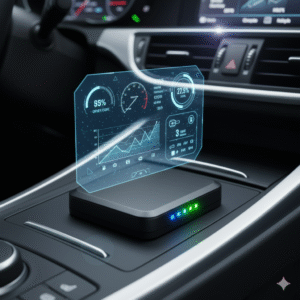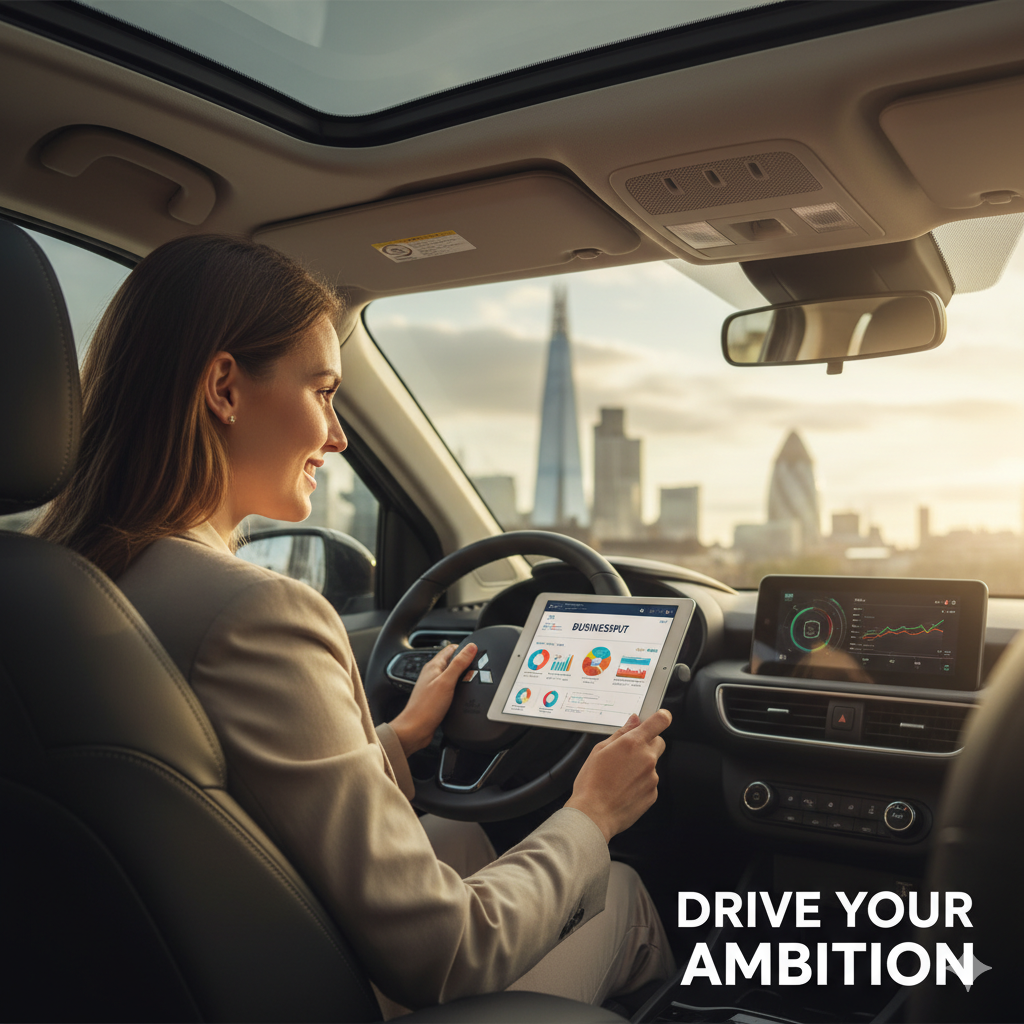🚗 Is Telematics Car Insurance Worth It in the UK? The Honest, Human Truth Behind “Black Box” Policies
Let’s be real — car insurance in the UK often feels like a game you can’t win. Prices go up for reasons you don’t understand, renewal quotes are higher even when you’ve driven perfectly fine, and sometimes it feels like insurers are guessing who you are instead of really knowing you.
But there’s a quiet revolution happening in the world of insurance — one that’s actually fair. It’s called telematics, or more commonly, black box car insurance.
If you’ve heard of it but aren’t sure what it really means, or if you’re wondering whether it’s just another marketing gimmick — you’re in the right place.
Let’s have a real chat — no jargon, no corporate fluff — about what telematics really does, how it affects your premium, and whether it’s worth trusting your driving data to a device in 2025.
🚙 What Is Telematics Car Insurance
Think of telematics as your car’s little truth-teller.
It’s a small device (often called a black box) or a mobile app that keeps track of how, when, and where you drive.
It watches things like:
-
🚦 Your speed
-
🛞 How gently (or harshly) you brake
-
⏱ When you drive (rush hour vs late night)
-
🛣 The distance and routes you travel
Your insurer then uses this data — powered by AI algorithms 🤖 — to figure out if you’re a safe driver. The safer you are, the less you pay.
In other words, telematics flips the old insurance system on its head.
Instead of guessing based on your age, postcode, or job, insurers now look at you. Your habits. Your real driving.
It’s not about stereotypes — it’s about fairness.
🧠 How Does Telematics Actually Work in the UK?
Here’s what happens when you sign up:
-
Your insurer installs a black box in your car (usually small and invisible).
-
Or you download an app that tracks your driving through your phone’s GPS.
-
Every time you drive, it records your speed, braking, cornering, time of day, and more.
Over time, this builds a driving profile — like a report card showing how safe you are on the road.
AI systems then analyse the data to see patterns. Are you consistent? Are you alert? Do you take unnecessary risks?
If you pass these invisible tests, you’re rewarded with lower premiums — sometimes instantly.
💬 The Human Side of It — Why It Feels Fairer
Let’s be honest — traditional insurance often feels unfair.
If you’re 19, you’re “high-risk.”
If you live in Manchester, you pay more than someone in Cornwall — even if you’ve never had an accident.
But telematics says: “Show us how you actually drive.”
You’re in control again.
Your car isn’t just a vehicle — it becomes your proof. It tells your insurer,
“Hey, my driver is careful. They respect the road.”
That’s what makes it feel so refreshing — and why so many UK drivers are switching to it.
💰 Real Benefits of Telematics for UK Drivers

✅ 1. Big Savings for Good Drivers
Let’s not sugarcoat it — car insurance in the UK is expensive, especially for young or first-time drivers.
Telematics can reduce that pressure.
Drive well for a few months and you could see your premium drop 20–40%. Some people even save £400–£600 in their first year.
“I was 20 when I got my first car — a tiny Ford Fiesta. My first quote was £2,500. After six months with telematics, it dropped to £1,700.”
— Maya, Birmingham
That’s the kind of real change that helps people actually afford to drive.
✅ 2. Great for New or Young Drivers
Young drivers often get judged before they even hit the road.
But telematics gives you a chance to prove your worth early on. It’s like saying,
“Don’t assume I’m careless just because I’m young. Watch how I drive.”
Parents love it too — it gives them peace of mind knowing there’s a layer of accountability for their teens behind the wheel.
✅ 3. Encourages Safer Habits
Telematics doesn’t just lower your bill — it improves your driving.
Most apps give you a weekly or monthly driving score and suggestions like:
“You braked suddenly 3 times this week — try slowing earlier next time.”
Over time, you naturally become a more mindful driver.
It’s subtle, but effective — and safer roads mean fewer accidents for everyone.
✅ 4. 24/7 Tracking Adds Security
It’s not talked about enough, but telematics can also help locate your car if it’s stolen.
Many UK police forces have recovered vehicles faster thanks to GPS data from black boxes.
So you’re not just saving money — you’re also gaining a layer of protection.
✅ 5. You Build a Digital Driving Reputation
Here’s something few people realise — your telematics data can act as proof of responsibility.
When you switch insurers, you can sometimes share your previous driving history to negotiate better rates.
It’s like having a digital portfolio that says:
“Here’s three years of safe driving. I deserve a fair deal.”
That’s the future of insurance — personal, data-driven, and transparent.
⚠️ The Honest Drawbacks (Because No System Is Perfect)
Now let’s be transparent — telematics isn’t all roses and rewards.
❌ 1. Privacy Concerns
Some people feel uneasy about their driving being constantly tracked.
Even though data is anonymised and secure, the idea of “always being watched” can make some drivers uncomfortable.
If privacy is your top priority, this might not be your favourite option.
❌ 2. Penalising Night Drivers
If you often drive late — for work, study, or night outs — your score might be affected.
That’s because insurers see night driving as higher risk (more accidents happen between 11pm and 4am).
So even if you’re careful, you might end up paying more — which feels a little unfair.
❌ 3. Tech Glitches Happen
While rare, GPS errors or technical faults can sometimes record incorrect data — like showing you went over the speed limit when you didn’t.
The good news?
Most insurers now have AI-powered systems that correct these errors automatically or allow you to dispute them.
❌ 4. Not Everyone Offers It
Although telematics is growing rapidly in the UK, not every insurer has adopted it.
So your choice of providers may still be limited — though that’s changing fast.
🤖 The AI Behind Telematics: Smarter, Fairer, and More Personal
Artificial intelligence is the engine behind telematics.
It doesn’t just collect data — it understands it.
Here’s how AI is improving telematics in 2025:
-
🧠 Smarter analytics: AI distinguishes between “risky driving” and “smart reactions.”
-
⚙️ Machine learning: Over time, it learns your habits and gives you personalised advice.
-
📊 Predictive pricing: It forecasts risk more accurately, meaning fairer premiums for everyone.
Imagine your app saying:
“You’ve improved your cornering score by 15% — nice work!”
It’s not just insurance anymore. It’s digital coaching.
🌍 Real Stories, Real Drivers
Let’s talk about some real experiences — because numbers don’t tell the whole story.
“At first, I didn’t like the idea of being tracked. But after seeing my first renewal drop by £300, I changed my mind. It also made me more confident — I drive smoother now.”
— Hassan, London
“The app actually helped me realise how harshly I was braking. I started giving more space on the motorway — it made me a calmer driver.”
— Rebecca, Leeds
Stories like these are why telematics is growing fast across the UK — it doesn’t just save money. It changes habits.
🏆 The Best Telematics Insurance Providers in the UK (2025 Update)
| Provider | What Makes It Great | Best For |
|---|---|---|
| Admiral LittleBox | App-based with clear feedback | Young drivers & students |
| Direct Line DrivePlus | Great for steady drivers | Working professionals |
| Tesco Bank Box Insurance | Clubcard rewards for safe driving | Families |
| Co-op Young Driver | Offers safety coaching | Learner drivers |
| InsureTheBox | Pay-per-mile flexibility | Low-mileage users |
Each has its own app, dashboard, and AI system, so it’s worth checking reviews before choosing.
📈 Example: How It Works for a UK Driver
Meet Liam, 24, from Manchester.
He drives about 8,000 miles a year — mainly to work and back. He keeps under 70mph, avoids late-night drives, and brakes smoothly.
After six months, his insurer rates him a “Top Tier Driver.” His renewal quote drops from £1,900 to £1,400.
Two years later, Liam switches to a new insurer — and his safe-driving history helps him secure an even lower deal.
That’s the power of consistent, responsible driving in the telematics system.
🧭 Telematics vs Traditional Insurance
| Feature | Telematics | Traditional |
|---|---|---|
| Premium Calculation | Based on real driving | Based on demographics |
| Rewards | Discounts for good driving | None |
| Privacy | Tracked | Private |
| AI Use | High | Minimal |
| Fairness | Personalised | Generalised |
💡 Who Should Choose Telematics?
✅ Perfect for:
-
New or young drivers under 30
-
Low-mileage commuters
-
People who want to prove they’re responsible
-
Families tracking teens’ safety
❌ Think twice if:
-
You drive late at night regularly
-
You dislike digital tracking
-
You share your car often with others
💬 FAQs — Because Everyone Asks These
Q: Is it really cheaper?
👉 Yes, but only if you drive safely and consistently.
Q: Will it track my personal destinations?
👉 No — it records routes and driving patterns, not who or where you visit.
Q: Can I challenge wrong data?
👉 Most insurers let you review and dispute errors if you think data’s unfair.
Q: What if I cancel mid-policy?
👉 Some providers refund unused months, but always check before signing up.
🏁 The Final Word — Is It Worth It?
If you’re a careful driver who values fairness and transparency, then yes — telematics car insurance is 100% worth it.
It’s not about punishing mistakes; it’s about rewarding mindfulness.
In a world where AI and technology are changing everything, telematics feels like a step toward something more human — where your actions, not assumptions, define your worth.
It’s not perfect, but it’s fair. It’s modern. And it’s making British roads a little safer, one black box at a time. 🚘✨
🌟 Key Takeaway
Telematics isn’t just a new insurance gimmick — it’s the bridge between technology and trust.
It’s giving power back to the driver, making insurance personal again.
If you drive with care, this isn’t just a money-saver.
It’s your badge of responsibility — your way of saying:
“I’m more than my age, my postcode, or my statistics.”
And that’s worth every mile. 💙

